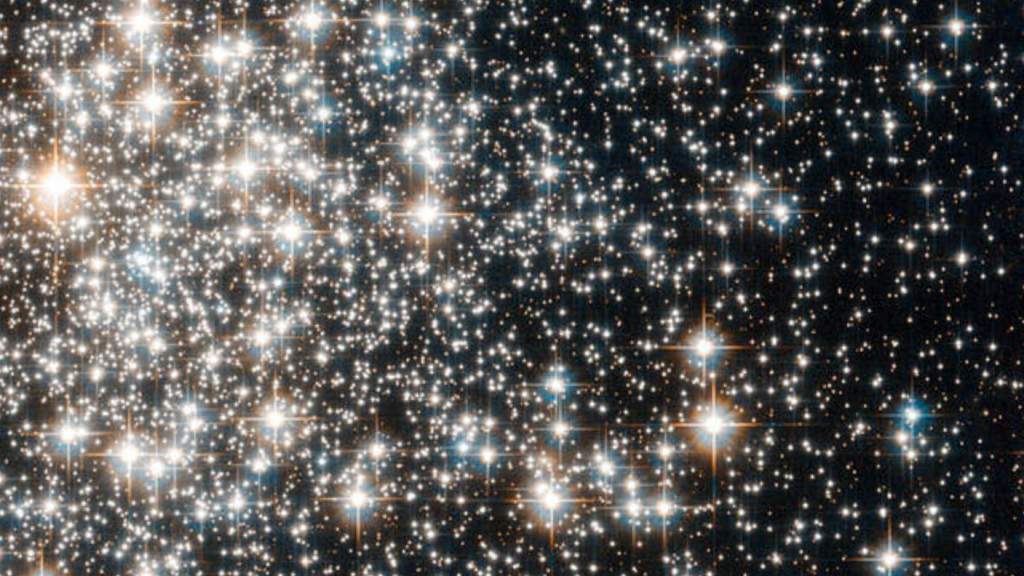Was the universe created for a purpose? This is the thirteenth of a series of short posts about whether gods exist and why the question is an important one.
Up to now, I have been addressing why the idea of gods is incoherent and often self-contradictory. Now I will address some positive reasons for believing that there are no gods.
Up to now, I have been addressing why the idea of gods is incoherent and often self-contradictory. Now I will address some positive reasons for believing that there are no gods.
 |
| Photo: Messier 107 star cluster from NASA & ESA/Hubble |
The first reason is that reality looks like we would expect it to look like if there were no gods.
Theists believe that their god created the universe with a purpose. But we do not see the universe moving towards any purpose. Instead, we mostly see impersonal forces pulling and pushing particles around, and mostly moving towards a state of increasing disorder.
Theists believe that their god caused the universe to be created out of nothing. But the modern study of physics is based on patterns, not causes. And it only allows us to examine back as far as the Big Bang.
We simply don’t know what might have happened before that. Our universe, or any number of others, might have begun or might be eternal.
Theists sometimes believe that their god fine-tuned the physical constants of the universe to allow life. But while these constants do allow life, they don’t seem to be related to that or any purpose.
In any case, from a theistic view, life is nothing to do with physical constants. It is spiritual. It could exist alongside any set of physical constants, or even without any physical matter at all.
The whole point of theism is that our life is not bound to our physical bodies or physical constants, but is spiritual in nature.
Indeed, if you believe that your god is a pure bodiless mind, and if you also believe that matter cannot come from nothing, then the most rational theistic conclusion would be that the god has spawned other pure bodiless minds, and that matter itself is an illusion.
None of these theistic ideas is consistent with the evidence of our senses about the universe that we live in. Reality looks like we would expect it to look like if there were no gods.
Theists believe that their god created the universe with a purpose. But we do not see the universe moving towards any purpose. Instead, we mostly see impersonal forces pulling and pushing particles around, and mostly moving towards a state of increasing disorder.
Theists believe that their god caused the universe to be created out of nothing. But the modern study of physics is based on patterns, not causes. And it only allows us to examine back as far as the Big Bang.
We simply don’t know what might have happened before that. Our universe, or any number of others, might have begun or might be eternal.
Theists sometimes believe that their god fine-tuned the physical constants of the universe to allow life. But while these constants do allow life, they don’t seem to be related to that or any purpose.
In any case, from a theistic view, life is nothing to do with physical constants. It is spiritual. It could exist alongside any set of physical constants, or even without any physical matter at all.
The whole point of theism is that our life is not bound to our physical bodies or physical constants, but is spiritual in nature.
Indeed, if you believe that your god is a pure bodiless mind, and if you also believe that matter cannot come from nothing, then the most rational theistic conclusion would be that the god has spawned other pure bodiless minds, and that matter itself is an illusion.
None of these theistic ideas is consistent with the evidence of our senses about the universe that we live in. Reality looks like we would expect it to look like if there were no gods.







"Theists sometimes believe that their god fine-tuned the physical constants of the universe to allow life. But while these constants do allow life, they don’t seem to be related to that or any purpose."
ReplyDeleteThat we know of or can comprehend at present.
Science can't undertake to rule out evidence not yet discovered That is a religious thing. But as it stands we can only go on the evidence that does exist, not that which doesn't.
DeleteFuck religion I want to understand the mechanics and parameters!
DeleteReligion will discover nothing. What is to be discovered will be done by science. We'll go to the crematorium without understanding the parameters and mechanics to any significant degree.
DeleteStill, I'll remain curious until they fire it up and I begin to smell like bacon!
Delete